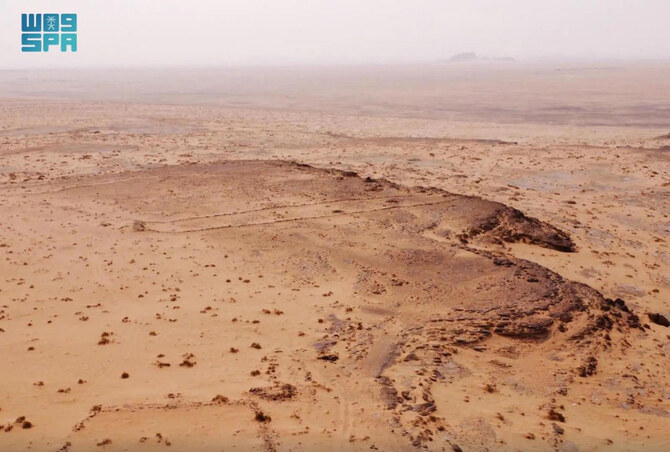MAKKAH: Saudi Arabia’s Heritage Commission will expand research and excavation efforts at new mustatil sites in the Kingdom, scientists said at a recent meeting of the body.
The commission held an open virtual meeting to discuss the recent findings on mustatils — some of the world’s oldest human-made stone structures — in the Hail region.
During the meeting, scientists stressed the importance of expanding the scope of their studies, and presented some of their preliminary findings.
They plan to focus on the environmental dimensions of mustatils, linking them to climate changes that affected the region during that period.
These studies are expected to provide a deeper understanding of ancient societies and how they adapted to their natural environment.
The researchers emphasized that these structures provide evidence of civilizations that developed in the region thousands of years ago and had played a central role in the lives of these communities.
Studies have been carried out using the latest archaeological technology, including aerial photography and 3D scanning, to analyze the sites more accurately and uncover new information about the structures.

The meeting began with a speech by the Heritage Commission’s CEO Dr. Jasser Al-Harbash who highlighted the importance of mustatils and their role in enhancing archaeological understanding of the Arabian Peninsula’s history.
Al-Harbash said mustatils are among the oldest archaeological structures in the Middle East, dating to between 4200 and 5400 B.C.
He highlighted the commission’s focus on collaboration and partnership with researchers and enthusiasts, to help reveal the cultural and social significance of mustatils.
Al-Harbash said it was vitally important to document and preserve them as an important element of the Kingdom’s cultural heritage.
Saudi Arabia’s Ministry of Culture is carrying out extensive studies on the mustatils, which are mostly found in the northwestern part of the country.
Dr. Salma Hawsawi, a professor of ancient history at King Saud University, spoke to Arab News about how Saudi Arabia has a significant number of stone circles, mounds, and other similar structures scattered across the country.
Many have been discovered in the region north of Madinah, particularly in Khaybar, Fadak and AlUla. These are made up of large slabs of stones arranged in triangles, squares, arches, ovals and heaps.
Hawsawi explained that these circles and mounds form geometric shapes, which may be connected or separate.
During the virtual meeting the researchers were asked about construction techniques, the connection between mustatils and climate changes, and the methods being used to preserve these archaeological sites.


























